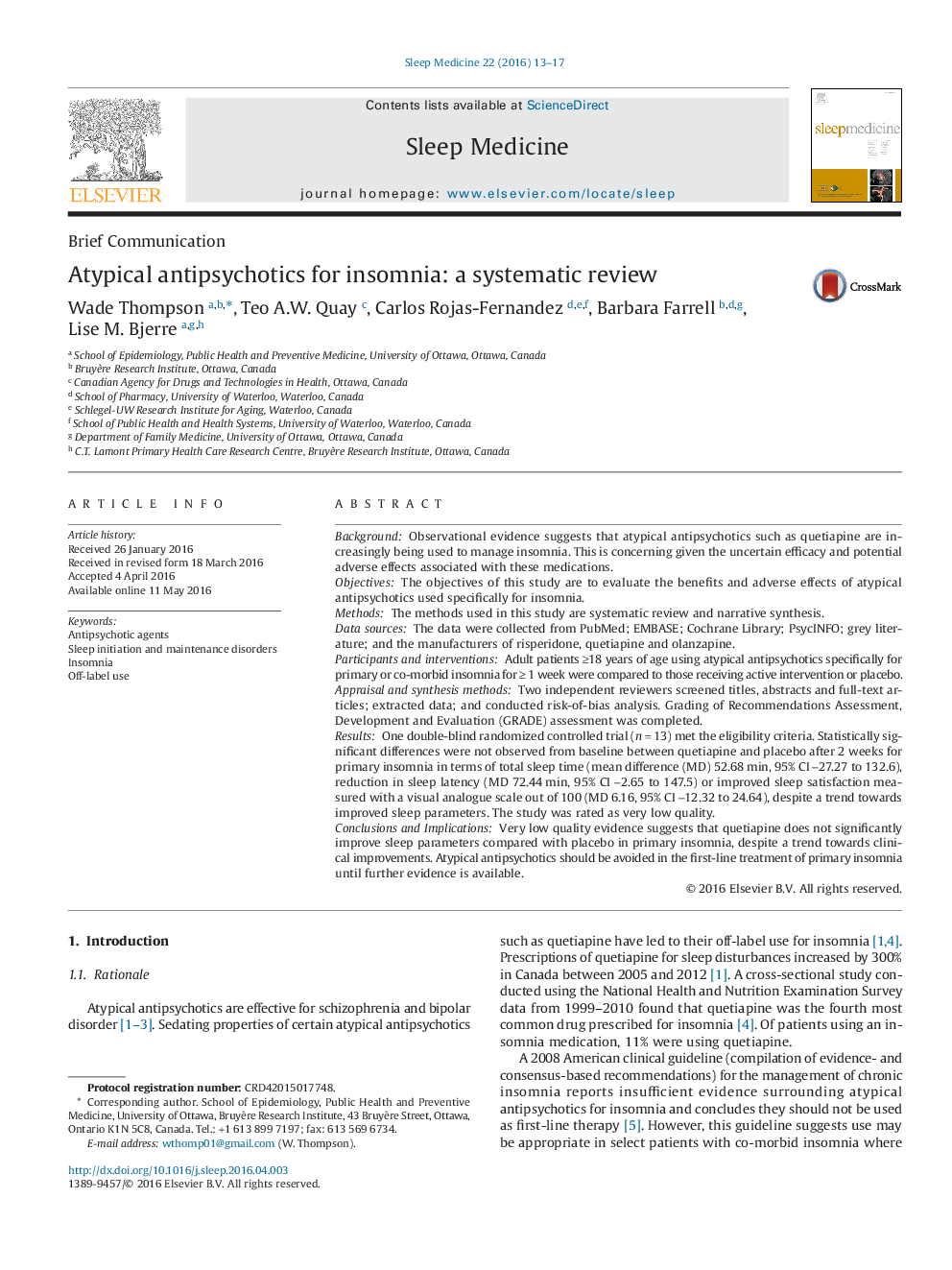| Article ID | Journal | Published Year | Pages | File Type |
|---|---|---|---|---|
| 6060124 | Sleep Medicine | 2016 | 5 Pages |
â¢Despite limited evidence, quetiapine is commonly used for insomnia.â¢A systematic, comprehensive search revealed one small randomized controlled trial of quetiapine for primary insomnia.â¢This paper resolves uncertainty in the evidence base that was present in previous non-systematic reviews.â¢There is a lack of evidence for using atypical antipsychotics for insomnia.
BackgroundObservational evidence suggests that atypical antipsychotics such as quetiapine are increasingly being used to manage insomnia. This is concerning given the uncertain efficacy and potential adverse effects associated with these medications.ObjectivesThe objectives of this study are to evaluate the benefits and adverse effects of atypical antipsychotics used specifically for insomnia.MethodsThe methods used in this study are systematic review and narrative synthesis.Data sourcesThe data were collected from PubMed; EMBASE; Cochrane Library; PsycINFO; grey literature; and the manufacturers of risperidone, quetiapine and olanzapine.Participants and interventionsAdult patients â¥18 years of age using atypical antipsychotics specifically for primary or co-morbid insomnia forââ¥â1 week were compared to those receiving active intervention or placebo.Appraisal and synthesis methodsTwo independent reviewers screened titles, abstracts and full-text articles; extracted data; and conducted risk-of-bias analysis. Grading of Recommendations Assessment, Development and Evaluation (GRADE) assessment was completed.ResultsOne double-blind randomized controlled trial (nâ=â13) met the eligibility criteria. Statistically significant differences were not observed from baseline between quetiapine and placebo after 2 weeks for primary insomnia in terms of total sleep time (mean difference (MD) 52.68âmin, 95% CI â27.27 to 132.6), reduction in sleep latency (MD 72.44âmin, 95% CI â2.65 to 147.5) or improved sleep satisfaction measured with a visual analogue scale out of 100 (MD 6.16, 95% CI â12.32 to 24.64), despite a trend towards improved sleep parameters. The study was rated as very low quality.Conclusions and ImplicationsVery low quality evidence suggests that quetiapine does not significantly improve sleep parameters compared with placebo in primary insomnia, despite a trend towards clinical improvements. Atypical antipsychotics should be avoided in the first-line treatment of primary insomnia until further evidence is available.
